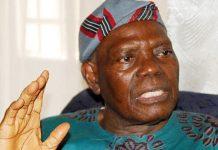
By Joy Onuorah
We currently live in a fast-paced world, where everything is becoming more digital by the second, and Nigeria’s public sector seems to be playing catch-up.
But Kashifu Inuwa, Director General of the National Information Technology Development Agency (NITDA), has a different vision.
He believes the key to solving many of Nigeria’s governance challenges lies in embracing technology—not just to make processes faster but to make government smarter and more responsive to the needs of the people.
At the recent Nigeria Govtech Conference and Awards in Abuja, hosted by the Bureau of Public Service Reforms (BPSR), Inuwa noted that Nigeria cannot afford to ignore the digital wave. Under the theme “Digital Innovations as a Catalyst for the Renewed Hope Agenda”, Inuwa urged for a radical shift in how Nigeria’s leaders think about governance. In his view, technology isn’t just a tool—it’s a solution.
“Leveraging technology will make governance more effective and efficient,” Inuwa stated, as he outlined the Federal Government’s plans to build a digital economy that benefits every Nigerian.
But his message wasn’t just about the economy. It was about changing the way government serves its people, ensuring that citizens are at the heart of every decision.
For Inuwa, the journey towards a digital Nigeria is mapped out in NITDA’s Strategic Roadmap and Action Plan 2.0 (2024-2027). It’s a bold and ambitious plan, built around eight pillars, including digital literacy, entrepreneurship, cybersecurity, and fostering an agile workforce.

These aren’t just buzzwords—they represent a commitment to making sure Nigeria’s citizens aren’t left behind in the digital era.
At the heart of Inuwa’s strategy is people. His focus is not just on using tech to make life easier for the elite or urban professionals but ensuring that every Nigerian—market traders, artisans, students—has the skills and opportunities to thrive in a digital world.
NITDA’s Digital Literacy for All initiative is already making strides, with plans to train 30 million Nigerians by partnering with the National Youth Service Corps (NYSC).
By 2030, NITDA aims for 95% digital literacy nationwide.
But Inuwa’s vision isn’t just about equipping people with digital skills. It’s also about transforming how government functions at every level.
From streamlining services to cutting bureaucratic red tape, technology, Inuwa argues, has the power to create a government that is more transparent, accountable, and responsive to the needs of its citizens. This, he says, is the future of governance.
The NITDA DG’s call for a digital-first approach echoes the frustrations of many Nigerians, who have long grappled with inefficient and outdated government systems.
For years, citizens have been stuck in endless queues, navigating complicated processes to access basic services.
Inuwa’s vision offers a break from the past, proposing a government that works faster, smarter, and puts people first.
Dasuki Arabi, Director General of the BPSR, shares Inuwa’s belief that digital transformation is key to unlocking Nigeria’s full potential.
At the event, Arabi emphasized that reforming the public service is not just about introducing new technologies but also about fostering a culture of transparency, citizen engagement, and inclusiveness.
With the right innovations, he believes that Nigeria can not only fulfill the promises of the Renewed Hope Agenda but also become a global leader in e-governance.
Yet, the question remains: Can Nigeria truly achieve this digital dream? Inuwa is confident that with the right partnerships—both within government and with the private sector—Nigeria can and will become a digital powerhouse. The key, he says, lies in collaboration and shared responsibility.
As Nigeria stands on the brink of a new digital era, NITDA’s efforts represent more than just a policy shift—they symbolize a transformative movement.
One that seeks to create a Nigeria where technology is not just for the privileged few, but a tool that empowers every citizen. A Nigeria where the government serves, and the people thrive.
The future is digital, and it’s time for Nigeria to catch up. But more importantly, it’s time for the people to reap the rewards of a government that finally works for them.

























